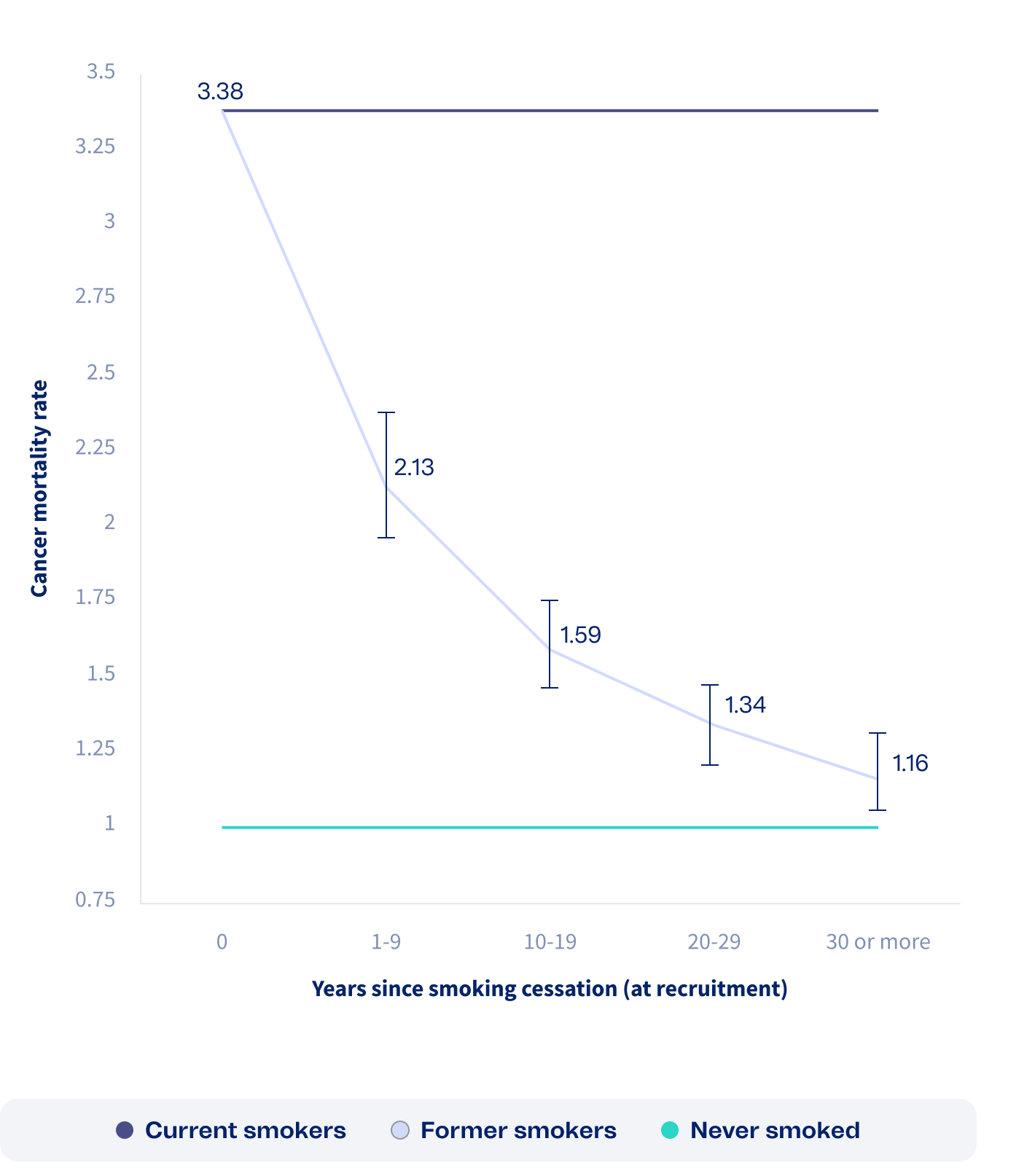Figure
3.3.5
Cancer mortality rate by years since quit smoking among individuals who formerly smoked relative to individuals who currently smoked and individuals who never smoked among US adults aged 25–89 years
Cancer mortality rate is more than three times as high among people who currently smoke as among people who never smoked.
After quitting smoking, the cancer mortality rate declines over the following decades and approaches that of people who never smoked. Smoking cessation can thus significantly reduce excess cancer mortality by more than half within the first decade after quitting smoking and by more than 90% in 30 years or more among people who formerly smoked relative to people who continue to smoke.

Source
- Thomson B, Islami F. Association of smoking cessation and cardiovascular, cancer, and respiratory mortality. JAMA Internal Medicine. 2024; 184(1):110-112.